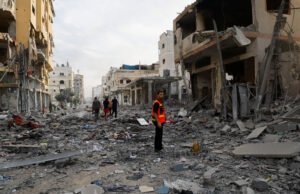Erdogan threatens Greece over oil, gas rights

Turkish President, Recep Tayyip Erdogan, has issued new threats to Greece as tensions soared between the two countries over rights to disputed economic zones.
Erdogan said in a statement on Saturday 5 August, 2020, that Greece “will understand that Turkey has the political, economic and military strength to tear up immoral maps and documents”.
Turkish forces have concluded plans to conduct military exercises in the Eastern Mediterranean amid tension, as Turkish authorities deployed a research vessel and an escort of warships last month to disputed waters between Cyprus and the Greek islands of Kastellorizo and Crete
Greece and Cyprus claim the area as their exclusive economic zones.
“They will either understand the language of politics and diplomacy, or on the field through bitter experiences. Turkey and the Turkish people are ready for every possibility and every consequence,” Erdogan said on Saturday.
Turkish military forces will be conducting 5-day military exercises on Sunday in the breakaway republic of northern Cyprus, which is recognized only by Ankara.
Last week, NATO said that Greek and Turkish leaders had agreed to dialogue in technical discussions to avoid accidents between their navies, but Greece said later it had not agreed to the talks.
Experts said the diplomatic crisis has echoes of disputes between Turkey and Greece in 1974, 1987 and 1996.
“There is clearly a chance for escalation, but these two countries also have a record of limiting the level of violence between them,” said Gallia Lindenstrauss, senior research fellow at the Institute for National Security Studies in Israel.
Lindenstrauss said it seems that the Greek side is still holding to its past positions and that Turkey is using this crisis for a larger agenda than just the legal dispute.
Paul Antonopoulos, an expert on Turkish-Greek relations, said technical talks between Greece and Turkey were unlikely to produce results because of disagreements over conditions.
As Turkey not only refuses to return its ships back to port, but has actually increased war and invasion rhetoric against Greece, discussions will not occur under these conditions, according to Antonopoulos.
He thinks Turkey’s recent advances in the eastern Mediterranean and in countries like Syria, Iraq and Libya, have been motivated by a maximalist push for neo-Ottomanism.
He said it is no surprise that Turkey’s military interventions have all been in countries that are not only former Ottoman territories, but are energy-rich.
“When we look at Turkey’s military escalations wanting to control energy deposits and its flows to support the country’s growing population and economic progress, dialogue to resolve issues with Greece will not be fruitful,” he said.
Earlier, Ankara announced joint military exercises with northern Cypriot forces from Sunday to 10 September though the air, land and sea drills are held every year.
Turkey’s opponents in the eastern Mediterranean, including France, Italy and the United Arab Emirates have all sent forces to join war games with either Greece or Cyprus in recent weeks.
The European Union, which counts Greece and Cyprus as members, has also threatened possible sanctions against Ankara over its “illegal” actions.
Turkey and Greece as neighbouring countries are on the verge of war three times since the mid-1970s, including once over maritime resources in the Aegean.
As it stands, the recent crisis is the most serious in Turkish-Greek relations in decades.







